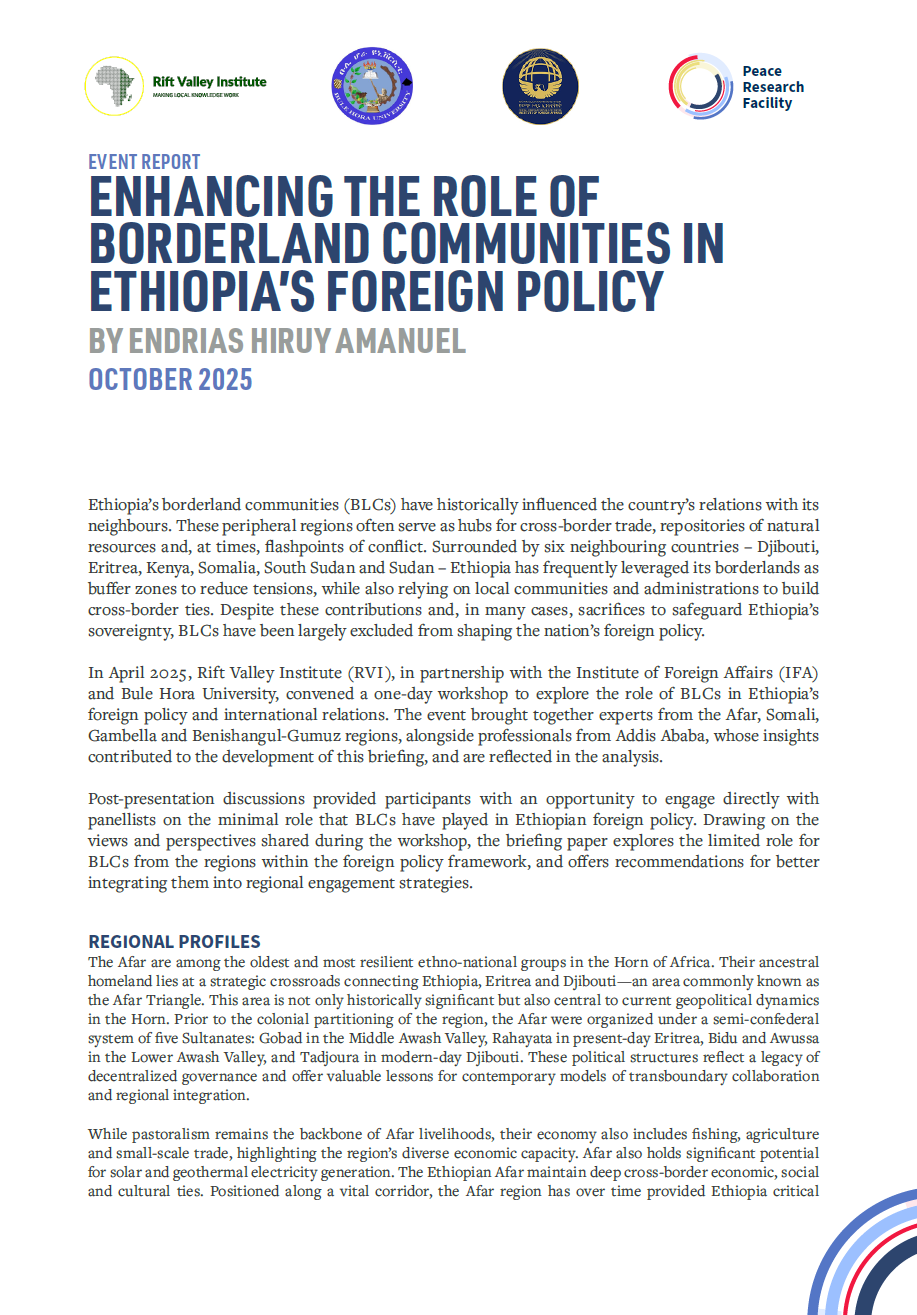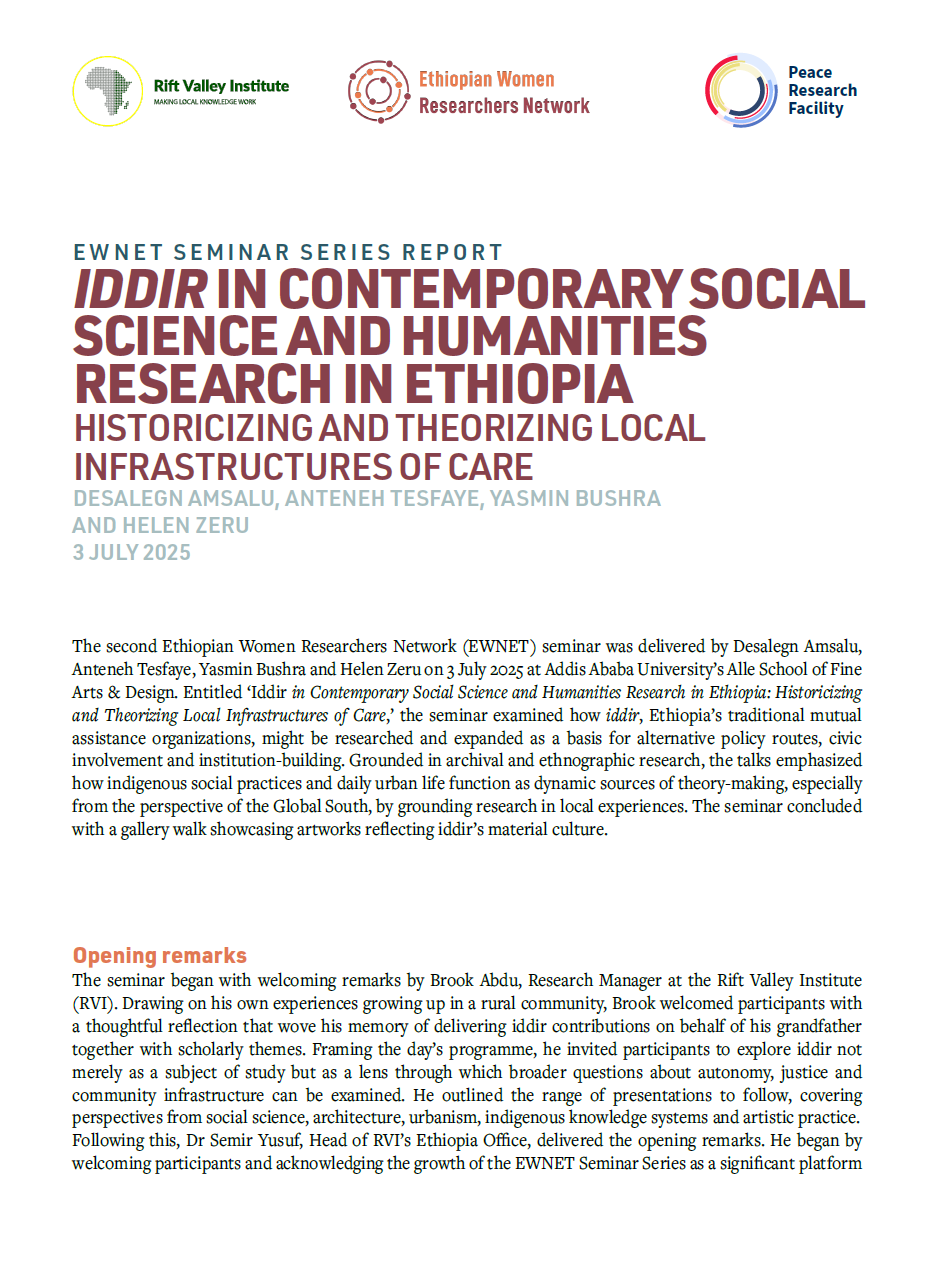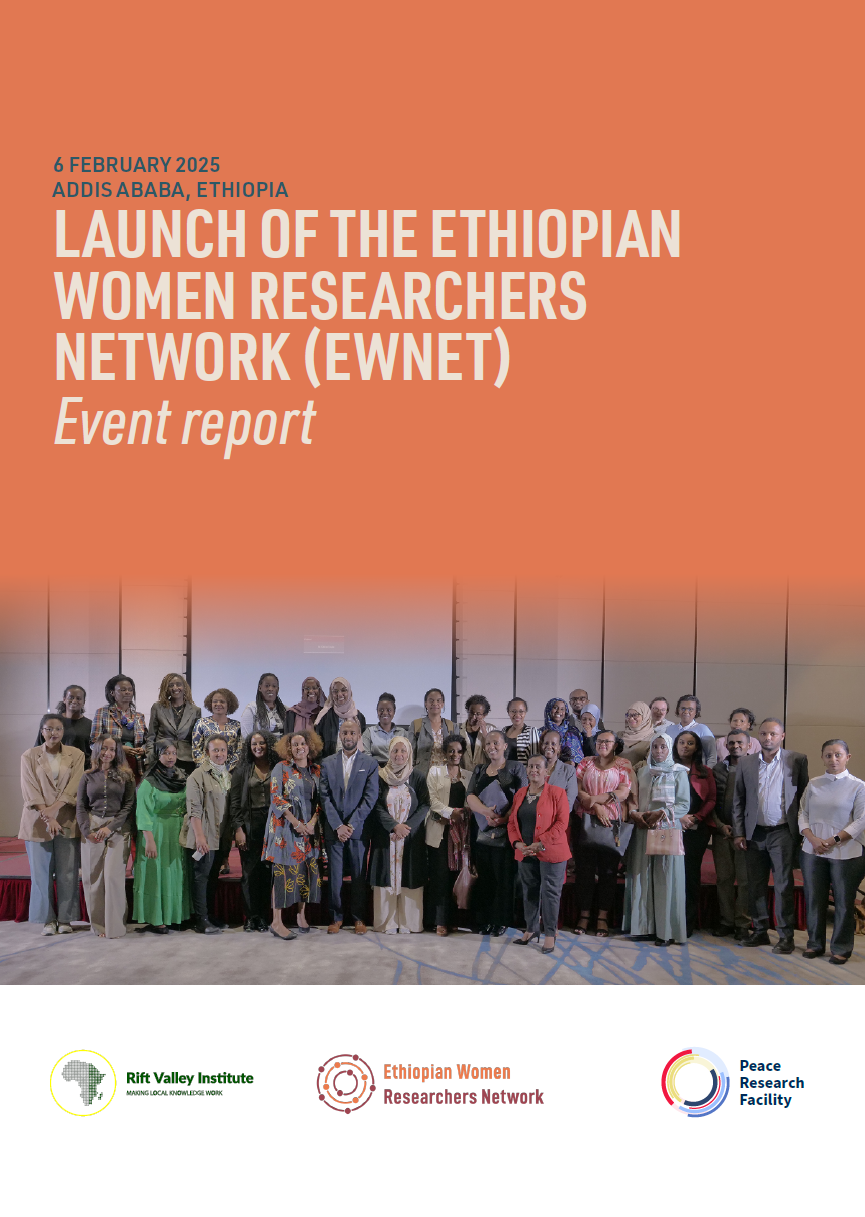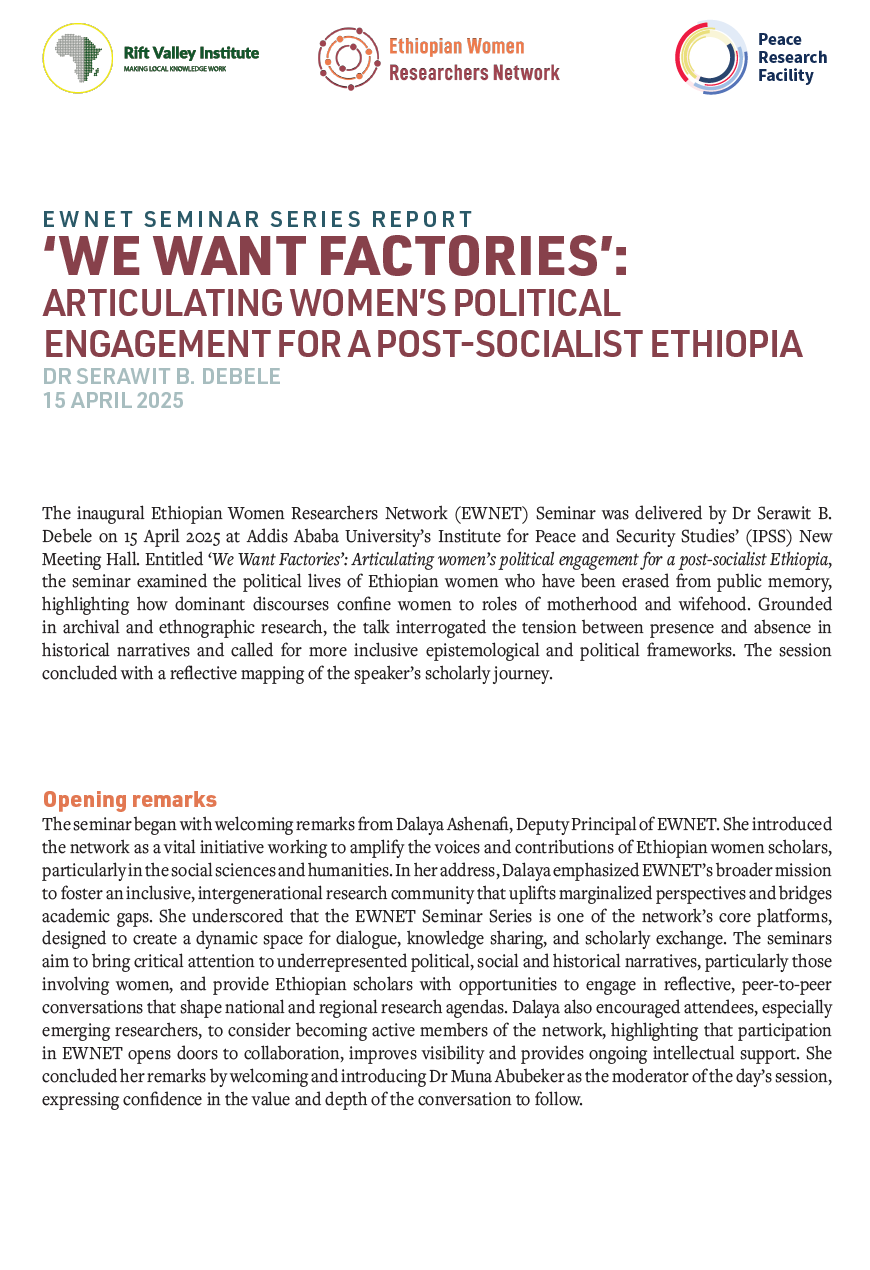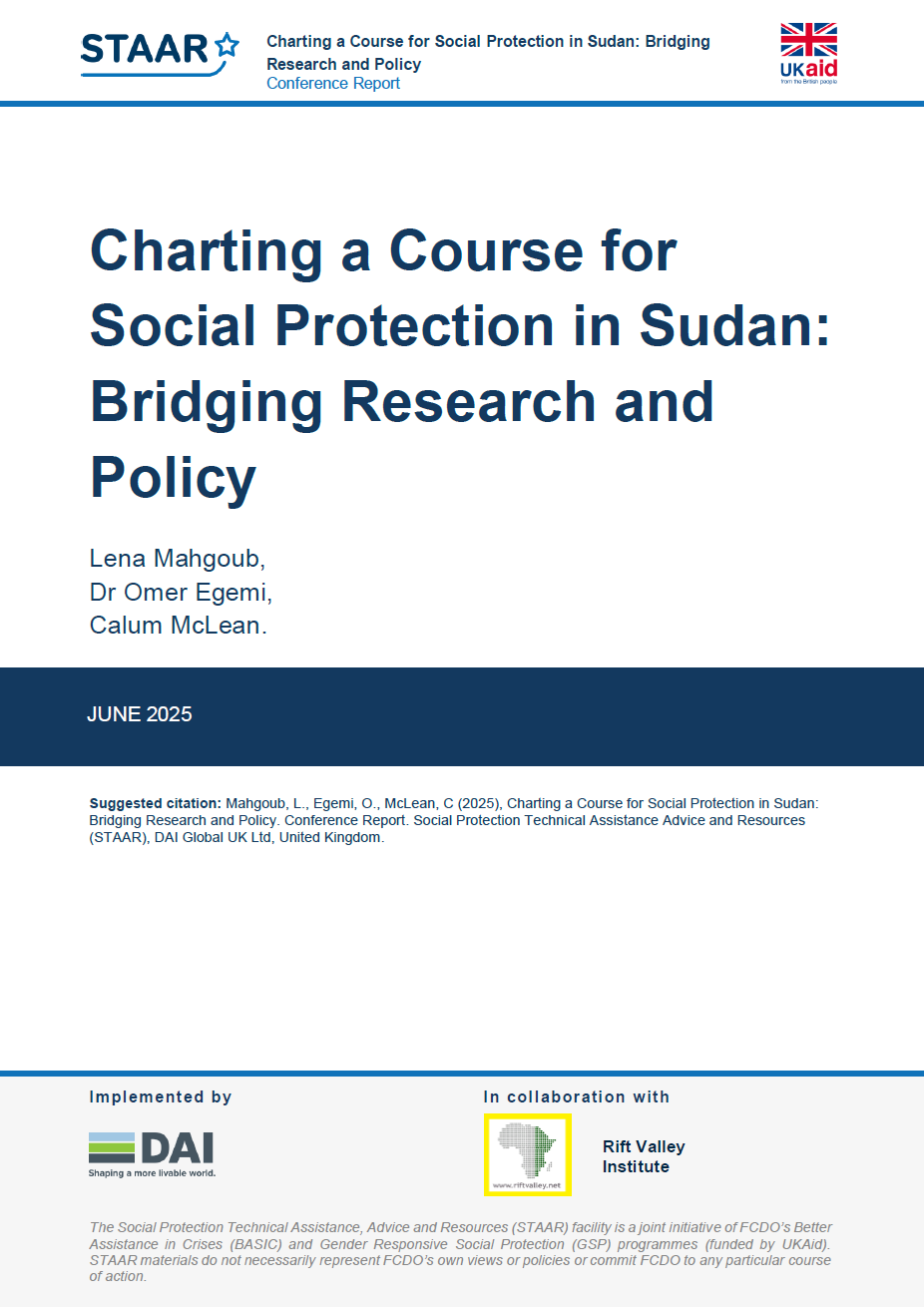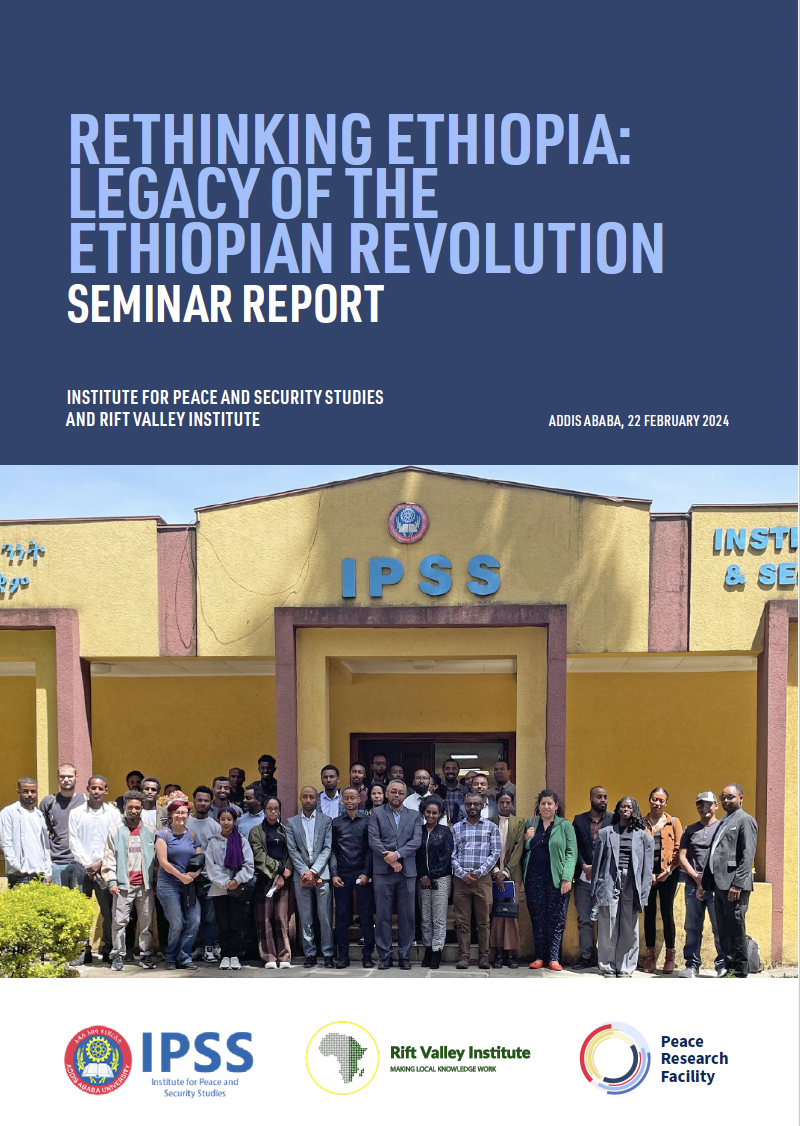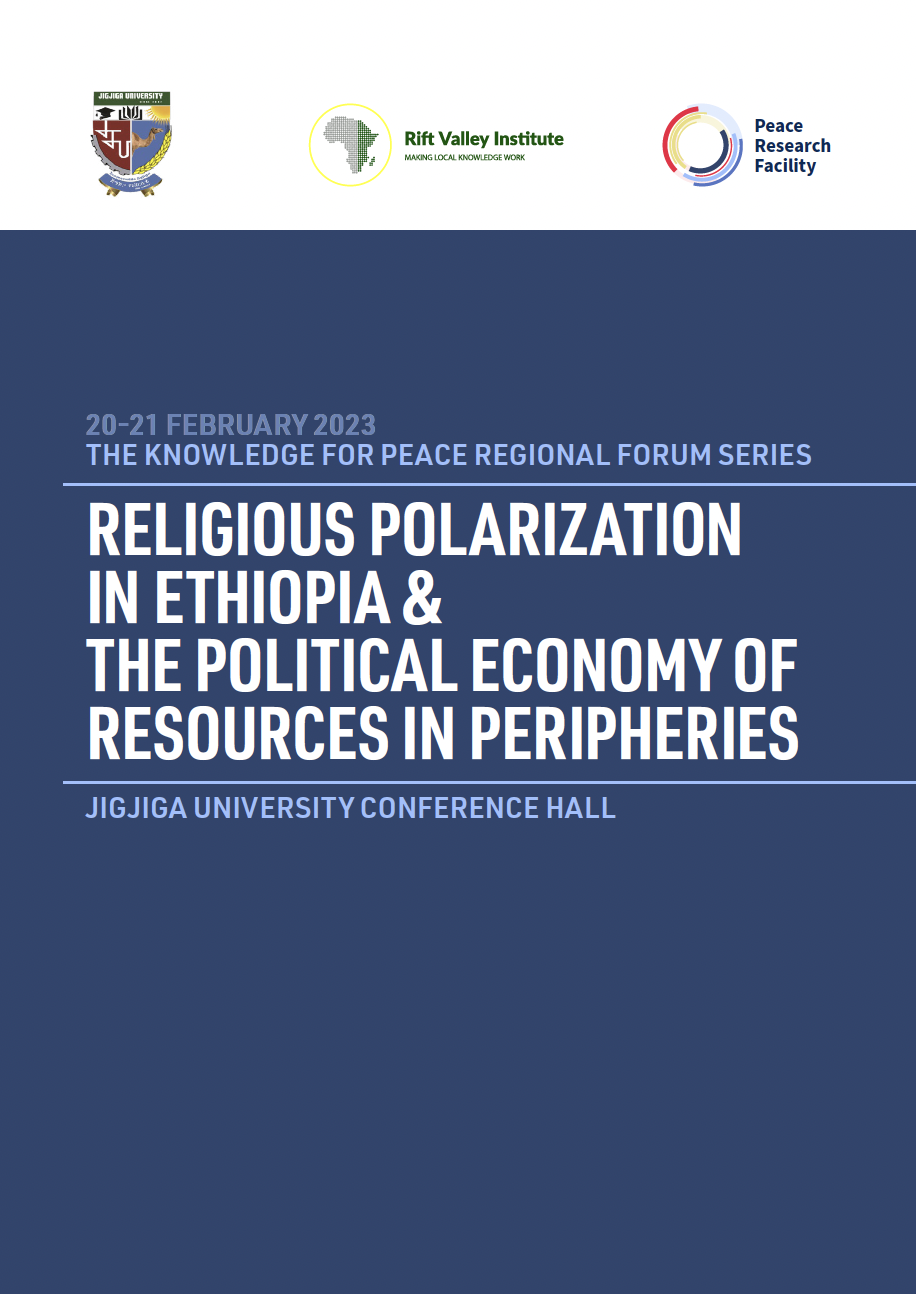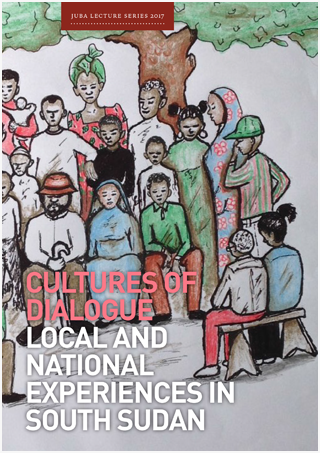Seminar report Rethinking Ethiopia, a collaborative essay competition initiative between Addis Ababa University’s Institute for Peace and Security Studies (IPSS) and the Rift Valley Institute’s (RVI) Peace Research Facility (PRF), offers a platform for Ethiopian youth to express their…
RVI publishes books, research reports, research papers, briefings and meeting reports in a range of formats. Publications cover policy, research, arts, culture and local knowledge in the countries of eastern and central Africa. Research publications—books, reports and papers—are peer-reviewed. Some RVI publications are also available in French and/or Arabic.
The RVI is a signatory of the Budapest Open Access Initiative (2001); all publications are free for download in PDF format under Creative Commons licences. The views expressed in books and reports published by the RVI are those of the authors, not the Institute.
SEARCH
PUBLICATION TYPE
LANGUAGE
REGION
COUNTRY
The Ethiopian Women Researchers Network (EWNET) inaugural writing workshop series aims to not only provide women researchers with uninterrupted time for their scholarly projects, but also build a supportive academic community. The first session, entitled ‘EWNET Writes: Writing Workshop…
Ethiopia’s borderland communities (BLCs) have historically influenced the country’s relations with its neighbours. These peripheral regions often serve as hubs for cross-border trade, repositories of natural resources and, at times, flashpoints of conflict. Surrounded by six neighbouring countries –…
The second Ethiopian Women Researchers Network (EWNET) seminar was delivered by Desalegn Amsalu, Anteneh Tesfaye, Yasmin Bushra and Helen Zeru on 3 July 2025 at Addis Ababa University’s Alle School of Fine Arts & Design. EWNET SEMINAR SERIES REPORT…
This report details the launch event for the Ethiopian Women Researchers Network (EWNET). The event took place on 6 February 2025 from 9.00 a.m.–2.30 p.m. at the Skylight Hotel in Addis Ababa. It was organized by the Peace Research…
EWNET SEMINAR SERIES REPORT The inaugural Ethiopian Women Researchers Network (EWNET) Seminar was delivered by Dr Serawit B. Debele on 15 April 2025 at Addis Ababa University’s Institute for Peace and Security Studies’ (IPSS) New Meeting Hall. Entitled ‘We…
With the purpose of charting a course for social protection in Sudan that will bridge the gap between research and policy, facilitate dialogue among key stakeholders and contribute to developing a shared vision for social protection in Sudan, this…
SUMMARY The Institute for Peace and Security Studies (IPSS) of Addis Ababa University and the Peace Research Facility (PRF) of the Rift Valley Institute (RVI) jointly organized a seminar on the theme ‘Rethinking Ethiopia: A Seminar on Youth Voices’,…
RELIGIOUS POLARIZATION IN ETHIOPIA &THE POLITICAL ECONOMY OF RESOURCES IN PERIPHERIES The Peace Research Facility (PRF) in partnership with Jigjiga University, held a two-day public forum on 20th and 21st February 2023 to discuss research findings on: The Knowledge…
Mounting peace agreements and numerous ceasefire violations have resulted in sustained international pressure on South Sudan’s leaders to end a civil war that has displaced some 4 million people and created a severe humanitarian crisis. In an effort to…
Recent Publications

Political Economy of Cash and Markets in Sudan
February 27, 2026
The research provides a snapshot of the war in Sudan in the period from February to April 2025. However, the war is dynamic, with political alliances and territorial control changing. The April 2023 conflict between the Sudan Armed Forces (SAF)

Rethinking Ethiopia II: Youth and politics
February 26, 2026
Seminar report Rethinking Ethiopia, a collaborative essay competition initiative between Addis Ababa University’s Institute for Peace and Security Studies (IPSS) and the Rift Valley Institute’s (RVI) Peace Research Facility (PRF), offers a platform for Ethiopian youth to express their ideas

2025 Year in Review
February 16, 2026
The 2025 Year in Review provides an overview of the Rift Valley Institute’s work over the past year across eastern and central Africa. The report highlights RVI’s research and publication outputs, education and training activities, and public forums and convenings,


